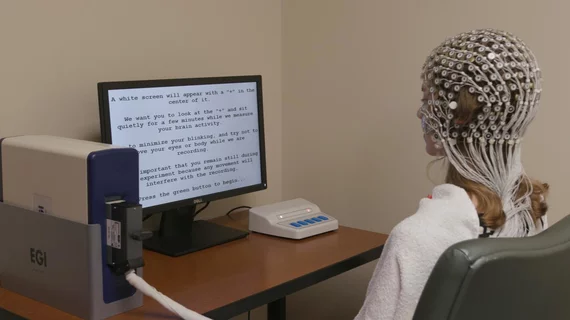AI predicts patient responses to antidepressants
Machine learning-based algorithms can predict how patients will respond to antidepressants, according to new research published in Nature Biotechnology. The secret, the authors revealed, is electroencephalography (EEG) data.
“Antidepressants are widely prescribed, but their efficacy relative to placebo is modest, in part because the clinical diagnosis of major depression encompasses biologically heterogeneous conditions,” wrote lead author Wei Wu, South China University of Technology, and colleagues. “Here, we sought to identify a neurobiological signature of response to antidepressant treatment as compared to placebo.”
The researchers explored data from more than 300 participants experiencing depression. Each person was given either a placebo or a common antidepressant—the decisions were made at random—and their EEG data was measured before they began treatment. Those findings were then used to develop a machine learning-based algorithm capable of identifying which patients will respond positively to an antidepressant within two months.
The algorithm achieved positive results, both during the initial study and with three additional patient cohorts. These findings, the authors observed, “provide a clinical avenue for personalized treatment of depression.”
“It can be devastating for a patient when an antidepressant doesn't work,” co-author Madhukar Trivedi, MD, a psychiatrist at UT Southwestern Medical Center in Dallas, said in a prepared statement. “Our research is showing that they no longer have to endure the painful process of trial and error.”

